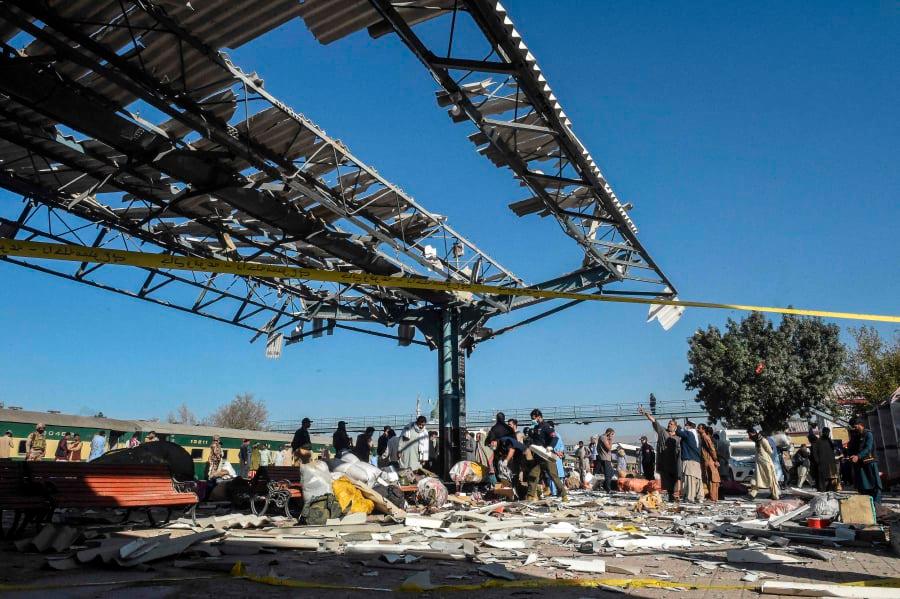QUETTA: Pakistani separatists killed at least 22 people Saturday in a bombing targeting a railway station in Balochistan province, local officials and a militant group said.
The blast hit as passengers waited on a platform at the main railway station in the provincial capital Quetta.
“The death toll has risen to 22, including one woman,“ said Shahid Rind, Balochistan government spokesman, raising a toll of 17 provided by police.
An AFP journalist saw pools of blood and ripped backpacks at the scene, where a large metal sheet protecting passengers from the elements had been blown off.
A spokesperson for a local hospital said 46 people wounded in the blast had been brought to the facility, along with multiple dead.
Despite frequent attacks in Balochistan the toll of Saturday's blast was particularly high for the southwestern province, which borders Afghanistan and Iran.
The train station explosion hit at around 8:45 am (0345 GMT) and was claimed by the Baloch Liberation Army (BLA), one of the area's main separatist groups.
The attack “was carried out on a Pakistani army unit at Quetta railway station... after completing a course at the Infantry School,“ the BLA said in a statement.
The group frequently claims deadly attacks against security forces or Pakistanis from other provinces, notably Punjabis.
At Quetta station, police said they were working to determine the cause of the blast.
“When we reached here, initially it appeared that some explosive had perhaps been hidden or left in the luggage. But now we think it may be a suicide bomber,“ Muhammad Baloch, a senior local police official, told journalists.
Firefighters, rescuers and passengers were working through abandoned luggage on the platform, guarded by heavily armed members of the security forces.
Militants have in the past targeted energy projects with foreign financing -- most notably from China -- accusing outsiders of exploiting the resource-rich region while excluding residents in the poorest part of Pakistan.
In August, the BLA claimed responsibility for coordinated attacks by dozens of assailants who killed at least 39 people, one of the highest tolls to hit the region.









